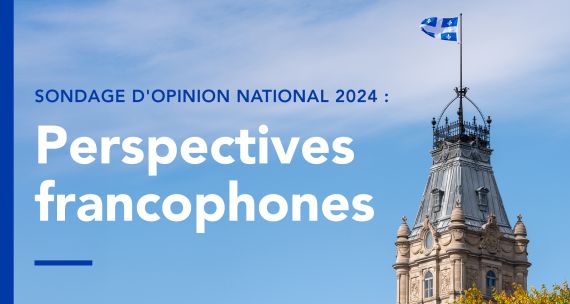The rise of Asia is dramatically changing the global political and economic landscape. Governments around the world are being forced to re-examine their policies and develop new strategies to address the changes underway. Understanding how their constituents view developments in Asia is an important piece of information that needs to be factored into their policy-making calculus. As part of an effort to take the public temperature, in 2016 the Asia Pacific Foundation of Canada (APF Canada) partnered with organizations in the U.S. (the Chicago Council on Global Affairs), Australia (the Lowy Institute for International Policy), China (Data Horizon), Japan (Genron NPO), and South Korea (the East Asia Institute) to conduct opinion polls on a mix of shared questions. The findings from this collaborative study provide valuable data on how Canada is perceived by key international partners, and how Canadian attitudes (as captured in APF Canada's National Opinion Poll) compare and contrast to their counterparts in the region.
What do Americans, Australians, the Chinese, the Japanese and South Koreans think about Canada?
Broadly speaking, the attitudes of the public in the five polled countries towards Canada are generally positive and warm. A majority of the populations across the surveyed countries, believe that their country’s bilateral relationship with Canada is either improving or stable. On the feeling thermometer from 0 to 100, Australians, Americans and the Chinese gave average scores of 84, 81, and 64 to Canadians, respectively.
What are Canadian public sentiments towards these countries?
With the exception of Russia, where 57% of Canada's population believes the relationship is deteriorating, the majority of Canadians think that bilateral relations with the United States, Australia, China, Japan and South Korea are stable or improving.
Other important bilateral relations
Similar to Canadians, the Americans are largely positive about their bilateral relations with most of the surveyed countries. The exceptions are attitudes to Russia (55%) and to China (40%), where Americans feel that their relations are deteriorating. A majority of respondents from other countries including Australia, South Korea, and China also see their country’s bilateral relations with the United States as stable.
The majority of the Chinese public polled view their relations with Australia, the U.S and Canada as stable. In contrast, 55 per cent see their relations with Japan deteriorating. This is not the case with the assessment of relations with Russia, where 50% of the Chinese public think that bilateral relations are improving. The Chinese people express the warmest sentiments towards Russia, with an average score of 71 degrees on the feeling thermometer. This warmth towards Russia differs widely from public opinion in other countries in the study.
For the most part, the majority of Australians think that their relations are either improving or staying the same with the five surveyed countries. One interesting finding of the survey is that a large majority of South Koreans (48%) feel that their country’s bilateral relations with China are improving in contrast to their relations to Japan, where 54% view relations worsening.
Issues that matter to Canadians
The surveys asked respondents to rate their level of concern about a series of potential external threats ranging from international terrorism and nuclear proliferation to climate change and future financial crisis. Canadians are most concerned about climate change (61% see this as a critical threat to Canada’s vital interests in the next ten years). In comparison, only 39% of Americans, 40% of Australians, 55% of South Koreans, and 39% of the Japanese see climate change as a critical threat to the vital interests of their countries in the near future.
An almost equal number of Canadians are concerned that cyber-attacks on crucial infrastructure and international terrorism will be critical threats, 59% and 58% respectively. Canadian concerns about cyber-attacks are more extreme than their Australian (45% rate as critical) and South Korean (35% rate as critical) counterparts. In the case of international terrorism, a larger percentage of Americans (75%) and Australians (66%) view the issue as a critical threat.
Canada shares with the U.S. a concern about the possibility of unfriendly countries becoming nuclear powers. Fifty-one per cent of Canadians and 61% of Americans see this as a critical threat.
While a significant percentage of Americans (49%), Australians (41%), and South Koreans (46%) see an international financial crisis as a potential critical threat in the next decade, Canadians are particularly concerned, with 54% listing this as a critical threat.
Canadians (27%), like South Koreans (23%) and the Japanese (21%) are much less concerned than Americans (43%) and Australians (44%) that a large influx of immigrants and refugees will pose a critical threat to their country.
The value of such a comparative cross-country study is that it begins to reveal where there may be promising grounds for bilateral and multilateral collaboration. For Canadian policy-makers it is particularly useful as it points to issue areas where we may find common cause with partners in the region, and also reveals areas where consensus may need to be forged.
To view the complete report published by the Chicago Council on Global Affairs, please click here.





